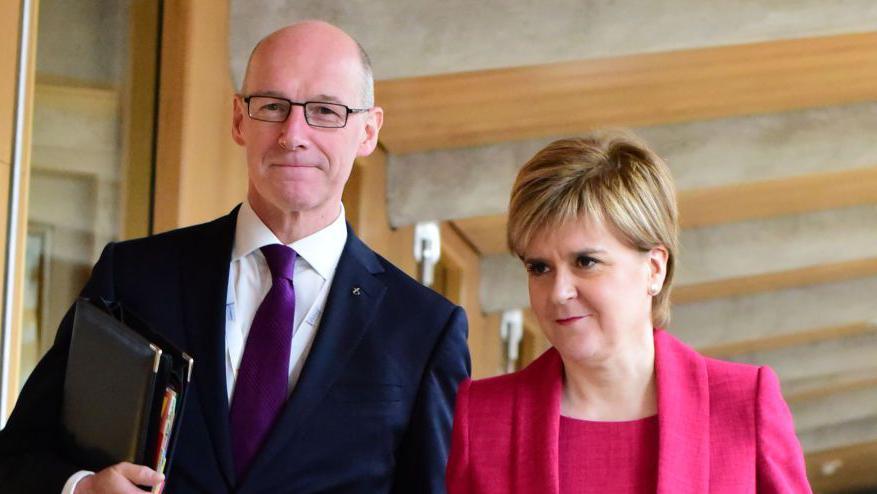The agony and ecstasy of the 2014 Scottish independence referendum
From the archive: How the Scottish indyref campaign unfolded
- Published
Jane Phillips was among the first people to vote in the Scottish independence referendum.
A teacher from Dundee, she was second in line at her local polling station when it opened on the morning of 18 September 2014.
Then aged 58, she was dreaming of a Yes victory that for months had seemed almost inconceivable.
A decade on, she tells BBC Scotland News: “I just remember the kind of tension, the excitement.
“There was a real sense that we could do it - a groundswell. A feeling that we were going to edge it over the line.”
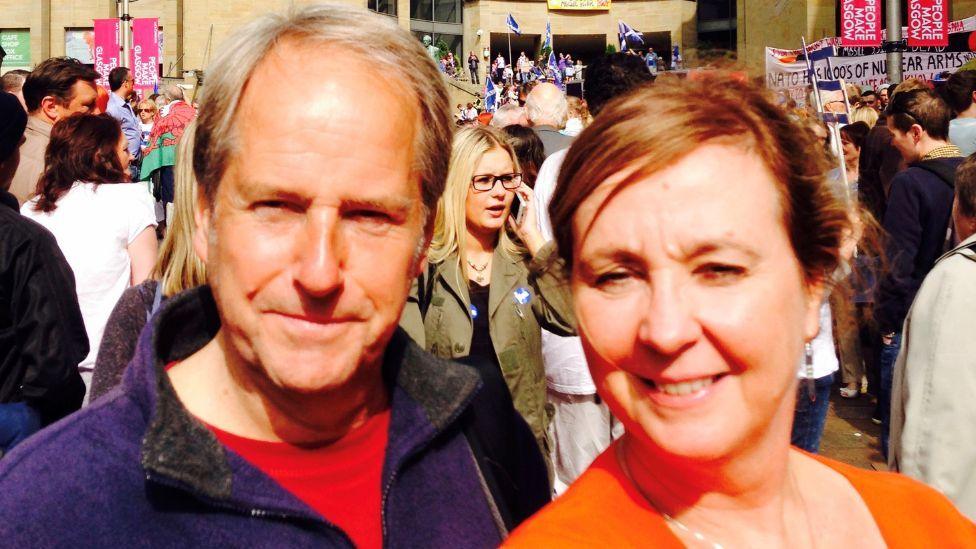
Jane Phillips, pictured with her husband Stewart, was buoyed by Yes events in Glasgow in the days leading up to the vote
It was an emotional day in the No camp too, says Cat Headley.
A 30-year-old solicitor making her first foray into politics at the time, she campaigned for Better Together in Edinburgh.
“The energy that existed was an amazing thing to be part of and I doubt I’ll ever experience that again," Cat says.
Malcolm Andrew, a 20-year-old No activist in Inverclyde in 2014, recalls both excitement and fear for those campaigning to keep Scotland in the UK.
"We were fighting for our country's place, which had been stable for hundreds of years," he says.
Malcolm remembers bright skies on 18 September, continuing what had been a sun-soaked summer for much of Scotland.
But for many, polling day brought cloud and rain, as well as the curtain down on a remarkable campaign.
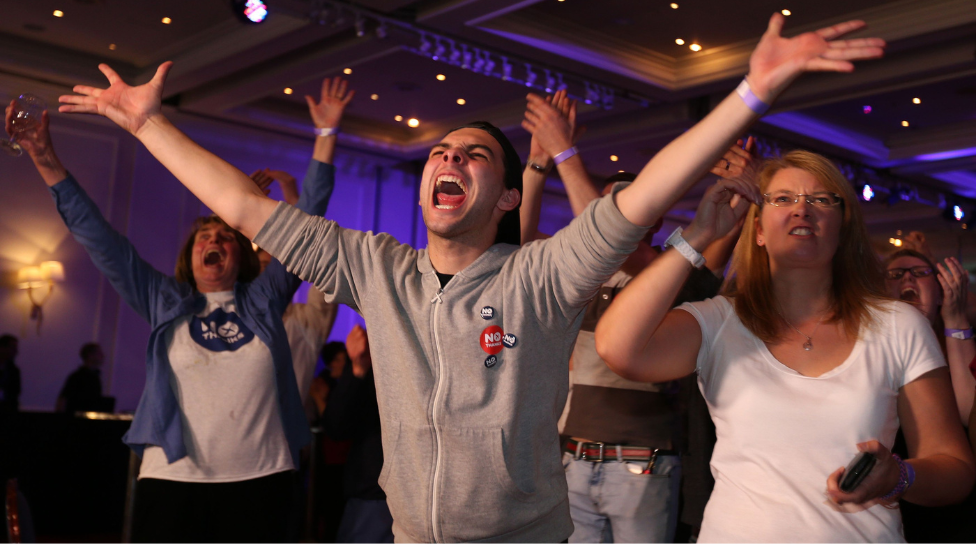
Better Together campaigners celebrated their victory in the Marriott Hotel in Glasgow
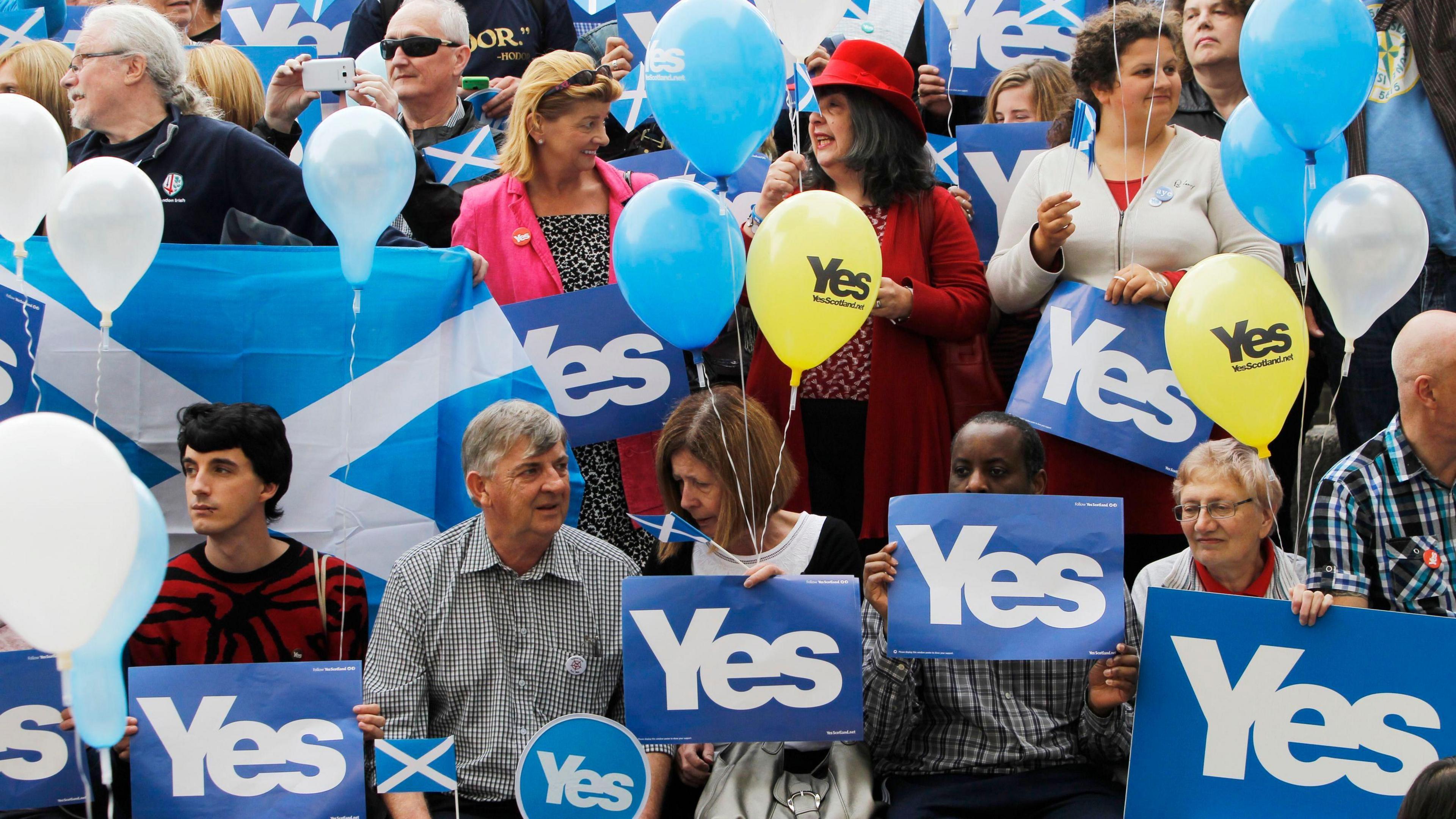
Independence supporters were galvanised by a late surge in the polls ahead of the referendum
Referendums naturally breed entrenchment. And everyone wanted to have their say.
From US President Barack Obama to Wetherspoons boss Tim Martin.
From royalty - Queen Elizabeth - to Scottish royalty - Andy Murray.
Rory Stewart, an MP over the border, even helped build a cairn, external near Gretna to promote “mutual respect and affection”.
But it was also a time of great fluidity.
Party politics - and inter-party politics - were forced to take a back seat in Better Together, no matter how much tensions bubbled towards the surface.
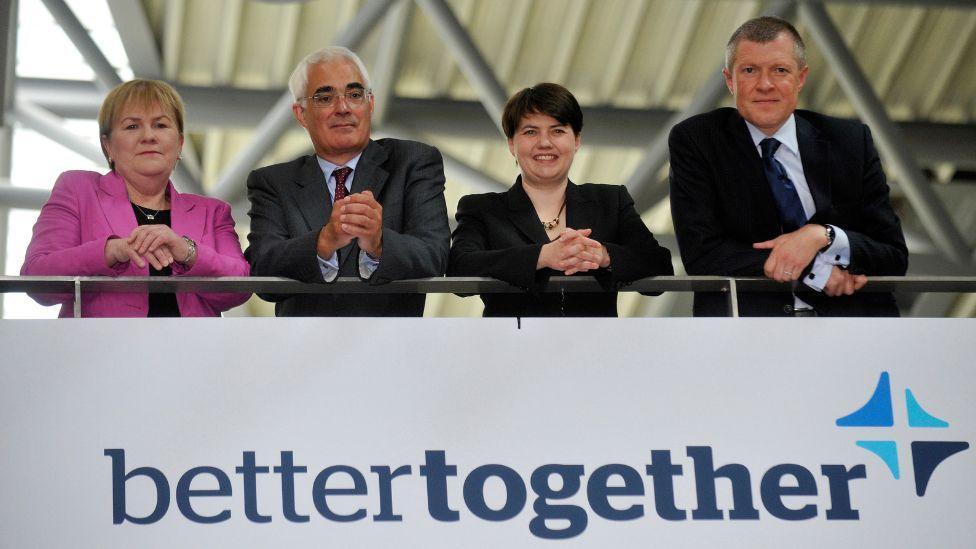
Scottish Labour leader Johann Lamont, Better Together chairman Alistair Darling, Scottish Conservative leader Ruth Davidson and Scottish LibDem leader Willie Rennie campaigned for a No vote
The Yes campaign, with Big Country's One Great Thing as its unofficial soundtrack, took an unexpected lead in an opinion poll, external just over a week before the referendum.
Three days out from the vote, independence supporters gathered in the Usher Hall in Edinburgh to be serenaded by some of the cause's celebrity backers - including Frightened Rabbit, Amy MacDonald, Mogwai and Franz Ferdinand.
Jane remembers her son, Tom, telling her: “We’re going to do this aren’t we?” And Louise Thomason, who campaigned for Yes in Shetland, remembers a "mood of possibility".
“We just felt like we had a real shot," she tells BBC Scotland News.
'The busiest day of my life'
That kind of exuberance was not always felt on the No side.
Former Better Together activist Alan Grant, then a 26-year-old politics graduate, says that by polling day he was just "relieved it was coming to an end".
Although he had no doubts about the outcome, he describes the campaign as "long, exhausting, tiring".
Ian Thomson, an organiser for Yes Berwickshire, describes polling day as “probably the busiest day of my life".
Then aged 60, he did Borders "valley dashes" - co-ordinating stalls on village greens and ferrying people to voting booths.
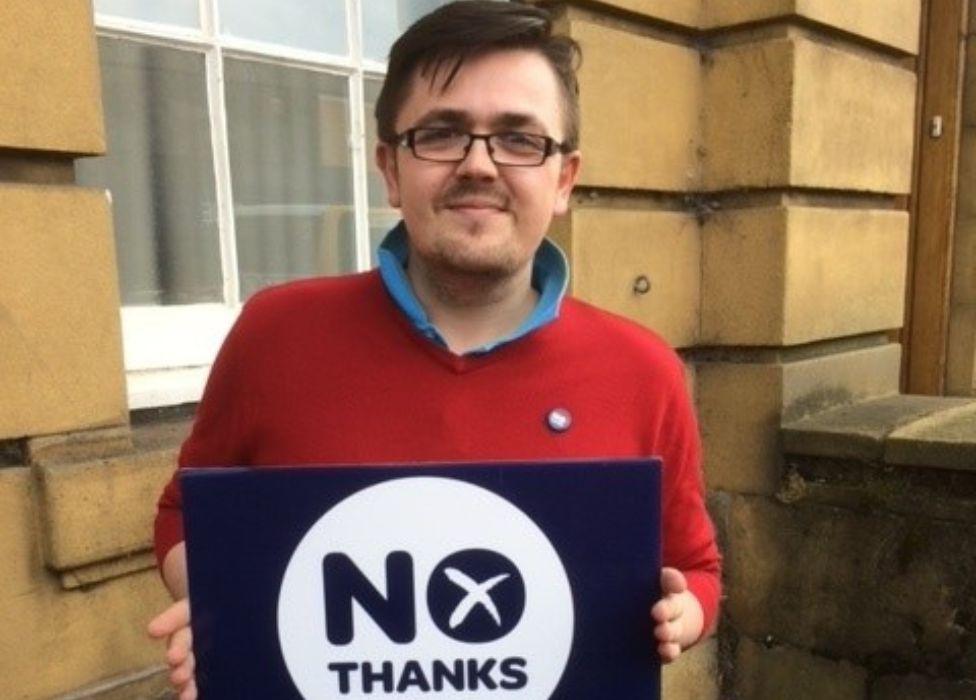
Better Together campaigner Alan Grant says it was an exhausting campaign
The first concrete indication that such efforts would be in vain came out of Clackmannanshire at 01:30.
Eva Comrie, a lawyer who campaigned for Yes, had been "absolutely certain" of victory in her local area. Instead, it was won by No with 55% of the vote.
"It was incredibly depressing, embarrassing, shameful," says Eva.
"It was one of the most major disappointments of my whole life."
Agony for some, ecstasy for others.
Cat, who spent the night at the Edinburgh count, says: "You could sense it from the Yes campaigners - from that moment on they knew what the result was likely to be."
The No side then secured thumping, if unsurprising, wins in Orkney and Shetland, before a narrow victory in the Western Isles.
Louise and her friends, filled with "nervous excitement", gathered in Shetland to watch the results.
She called it a night early after things started to go "badly wrong".
"I was thinking I would sit up all night but I remember thinking actually I can't face this," she says.
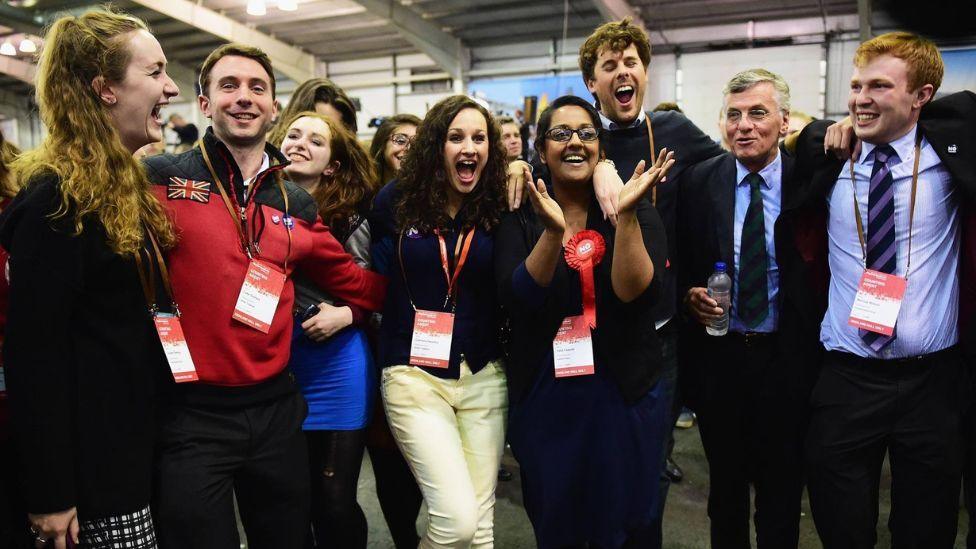
Cat Headley, centre, celebrated victory at the Edinburgh count
The major drama came from Inverclyde, where No won by just 86 votes, sparking groans and hands on heads among the Yes ranks in Glasgow.
Malcolm says it was pure relief for the Better Together team at the count.
Soon Alan was cheering a "delightful” win for No in his native East Lothian.
When the national result - 55.3% for No, 44.7% for Yes - was confirmed, Cat describes a scene of "exhilaration" at the Edinburgh count.
She adds, though, that it was "impossible not to feel for those who felt as passionately as you but that weren't getting the outcome that they had dreamt of”.
Consolation came in the form of Yes cities Glasgow and Dundee - of which Jane says she was proud - but the 2014 dream was over.
Better Together grandees toasted their success at the Marriot Hotel in Glasgow, while Yes chiefs attended what Nicola Sturgeon described as a "wake" at Edinburgh’s Dynamic Earth.
Meanwhile, trouble flared in Glasgow city centre after a group of union supporters charged at independence activists in George Square, with dozens of arrests made.
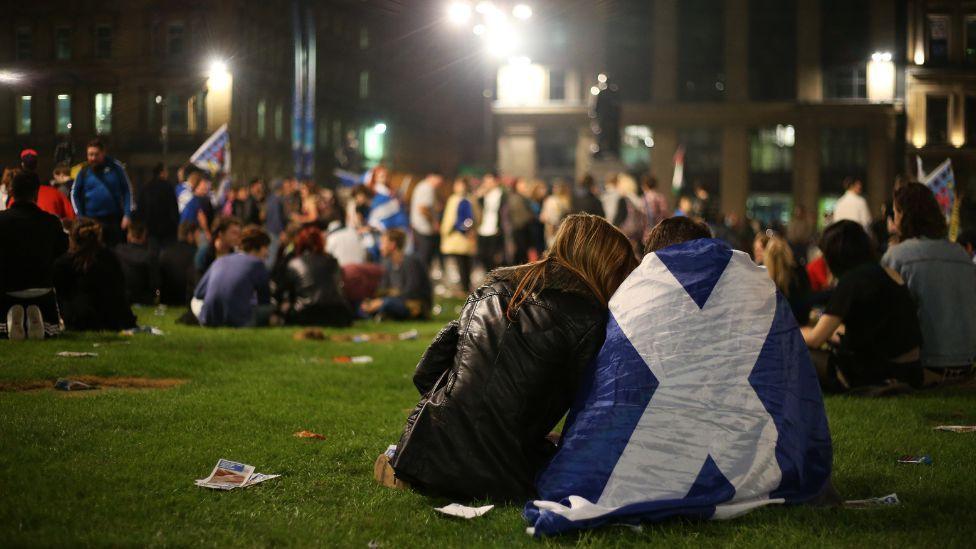
Yes activists did not get the result they wanted in 2014, but look back on a "hugely positive" campaign
Though that was a rare instance of disorder, tensions had inevitably run high throughout the campaign - both on Scotland's streets and in the nascent Twitter-sphere.
Ian in Berwickshire complains of "aggression" from the No side, while Cat says Better Together activists were sometimes accused of being "traitors".
“It wasn’t all being shouted at on street stalls," she adds, reminiscing about people from across the UK turning up in Edinburgh on the day of the vote to support the union.
The Better Together activist sensed Scotland was on the "cusp of something", adding: "But the kind of new beginning that we were on the cusp of wasn't what I was hoping it would be.”
'Hope and aspiration'
Such sentiments hint at a key contradiction of the referendum - neither side walked away completely content.
While No was victorious on the night, Better Together activists lament what they see as a failure to properly move political discourse on from September 2014.
"That’s been the lasting, scarring legacy of the whole sorry mess," says Alan.
The Yes side did not get the result it wanted, yet it has claimed a victory of sorts.
Louise recalls fondly a period when she feels Scots were able to "imagine something other than the status quo".
"It was hugely positive," says Ian of the campaign.
Jane adds: "It has changed my view on what is possible. It's given me hope and aspiration for the future.”
A decade on, memories may have faded, but feelings remain raw.
Related topics
- Published14 September 2024
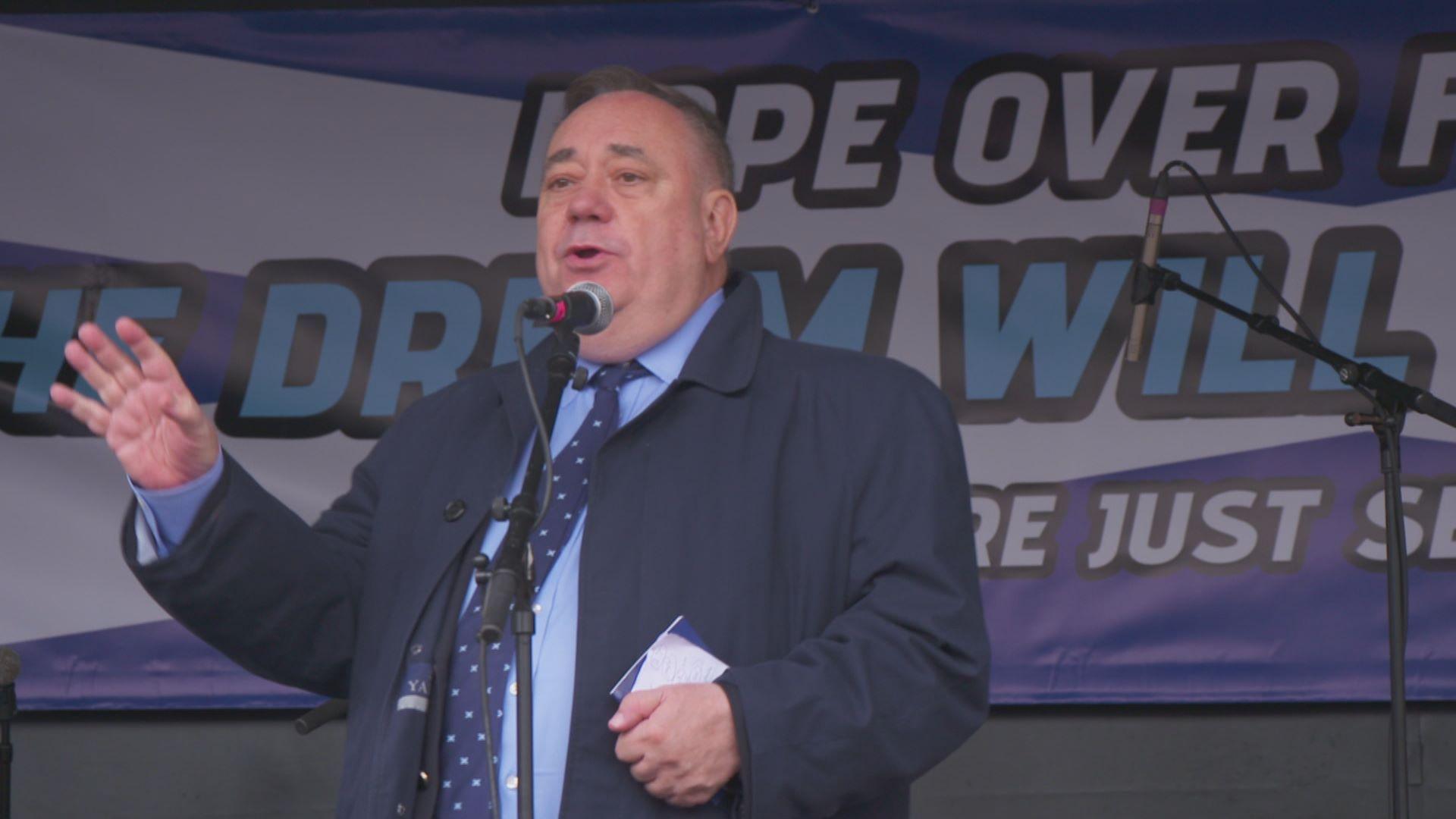
- Published8 September 2024
